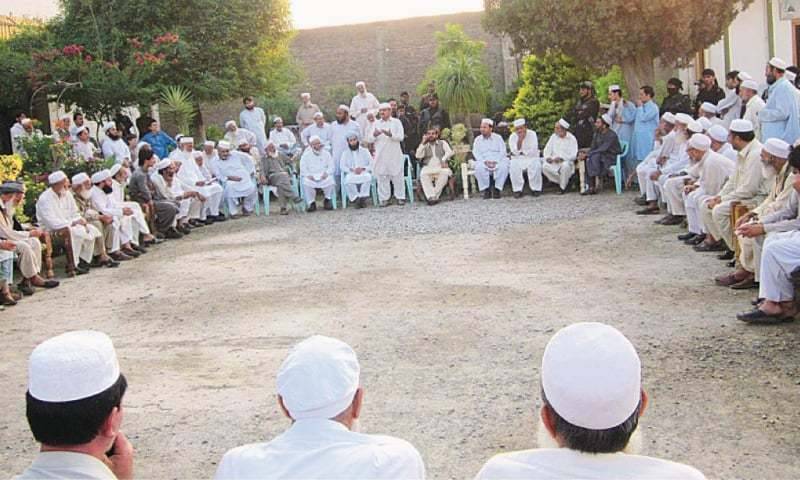Woman challenges jirga which gave her daughter as wani

Stay tuned with 24 News HD Android App

A woman is seeking justice and protection not only for herself but also her little daughter in Khairpur after local elders at a jirga decided to exchange the girl as wani for resolving a dispute triggered by a marriage, reported 24NewsHD TV channel on Thursday.
The incident occurred near Pir Jo Goth – a town famous for being the centre of Pir Pagara – also known as Pir Pagaro – family.
According to the details shared by the woman named Shabana, it started a year ago when her husband, Dargahi, contracted second marriage with a girl from the same clan. In fact, it was a love marriage that resulted in holding a jirga which decided that Dargahi should give his daughter as wani to resolve the matter. And he accepted the conclusion.
However, Shabana says she refused to accept that despite the insistence of her husband. The rejection infuriated Dargahi who forced her to leave the house.
Being a victim of social structure, the mother now wants to protect her daughter against all odds.
Commenting on the issue, police said an inquiry was underway on the complaint filed by the woman, adding that protection would be provided to both Shabana and her daughter.
Wani is a custom under which girls, mostly young or underage, are exchanged to settle disputes – ranging from love marriages to land issues – between two rival families or groups. Given that the majority doesn’t believe in acting according to the will of women, these little girls are traded like a property, who doesn’t even know what is happening around them.
The upper areas of Sindh are notorious for repressive traditions and practices of wani, forced marriages and honour killings. And it is the reason why reports of jirga making such decisions are common there. However, such revelations are just a tip of an iceberg as the victims, fearing for their lives, remain silent in most of the cases amid the absence of any state protection.
